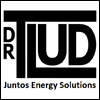I am trying to reach each of the men named below: Zhang, Durix, Baskoro and Dong. associated with a recent (undated, but probably late-2016) conference presentation:
TOWARD UNIVERSAL ACCESS TO CLEAN COOKING
INDONESIA CLEAN STOVE INITIATIVE
Prepared by
Yabei ZHANG (Task Team Leader)
&
Laurent DURIX (Co-Task Team Leader)
Presented by
Yohanes Iwan Baskoro
Biomass Energy Promotion Practitioner
at 2016 Forum of Renewable Energy Promotion in Developing Countries
Beijing, People’s Republic of China
The chairman of the Forum was Dr. Renjie Dong
This is an extremely interesting and valuable 27-slide PowerPoint presentation that I read last night. I am trying to determine the following:
1. Is this presentation available on the Internet? Will it be, by whom?
2. If not available, can I have permission to place it at one of my websites and announce its availability?
3. What are the email contacts for these men?
4. Who has access to the data / results that are summarized in the presentation? Especially, who has control of the results of the testing of the thirty stoves (out of over 50 stoves submitted) that are reported in slides 18 to 22?
5. Of the 30 stoves tested, 14 are shown with results on slide 19. 16 others were not reported.
6. In particular, on slide 22, is the following:
“The cleanest and most efficient stoves could not be made available [in Indonesia’s RBF – Results Based Financing – incentive program] (too expensive for international and production issues for the Indonesians [stoves])”
7. In my opinion, this is extremely valuable data, paid for by the World Bank and others, that have not been released, not even (as far as I can determine) to the companies that had a stove in that group of 16. That data should be released, at least to the companies that submitted stoves.
8. Note: On slide 19 showing the 14 included stoves, the price range is from ~US$ 8.50 (two stoves) to ~US$ 17 (five stoves). Clearly, any stove costing more than US$20 was virtually excluded, regardless of its performance. For many of those “international stoves”, merely the shipping costs could have made them non-competitive in the Indonesia program. NOTE: This is NOT a criticism of the Indonesian efforts, which actually should be highly commended.
9. And now as of 2016, we know from the Deganga Case Study ( drtlud.com/deganga2016 ) that a TLUD stove that costs US$32 at the factory in India (no international shipping charges in this case) can actually be sold to many thousands of people for only $15 in projects with carbon credit assistance. With carbon credit assistance, that stove could have been a major participant in the Indonesia efforts, and could have begun production in Indonesia by now. Lost opportunities.
So, please help me get the cited presentation available for all of you to read, and to have clear contact with the people in Indonesia who can provide the requested data.
By the way, the presentation also has extremely interesting information about Indonesia’s LPG stove project with 54 million (by 2012, so now maybe 60+ million) packages of stove and LPG cylinder distributed for free.
Paul
-- Doc / Dr TLUD / Prof. Paul S. Anderson, PhD Email: psanders@ilstu.edu Skype: paultlud Phone: +1-309-452-7072 Website: www.drtlud.com
